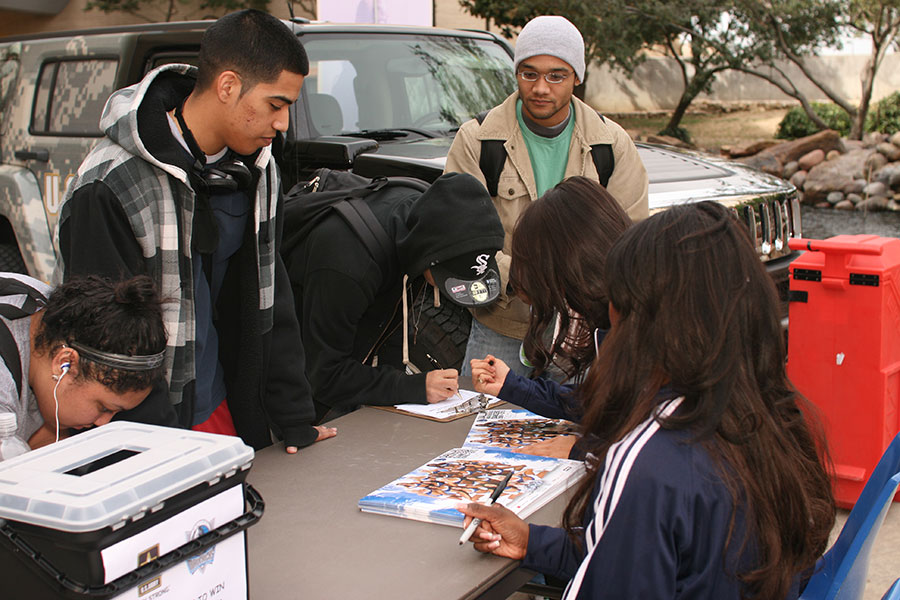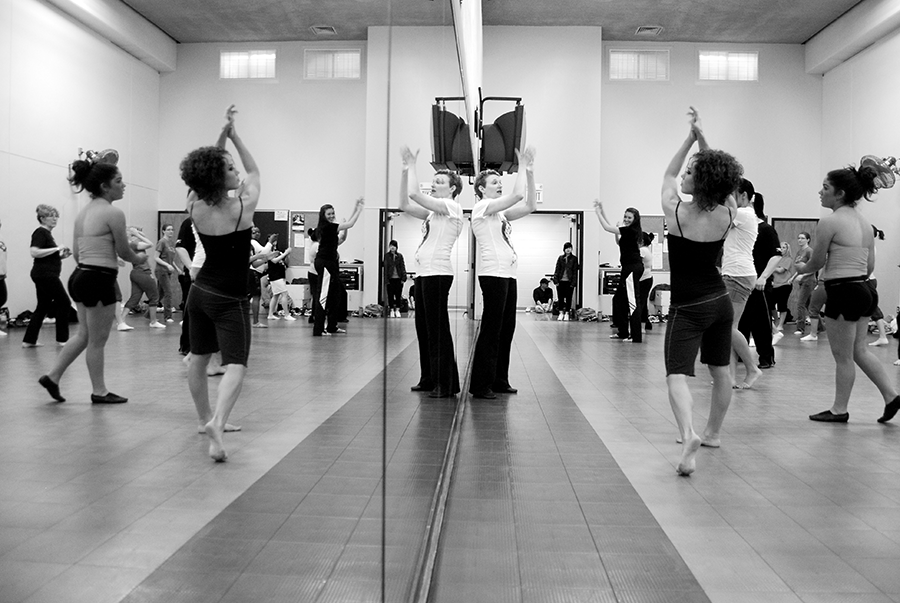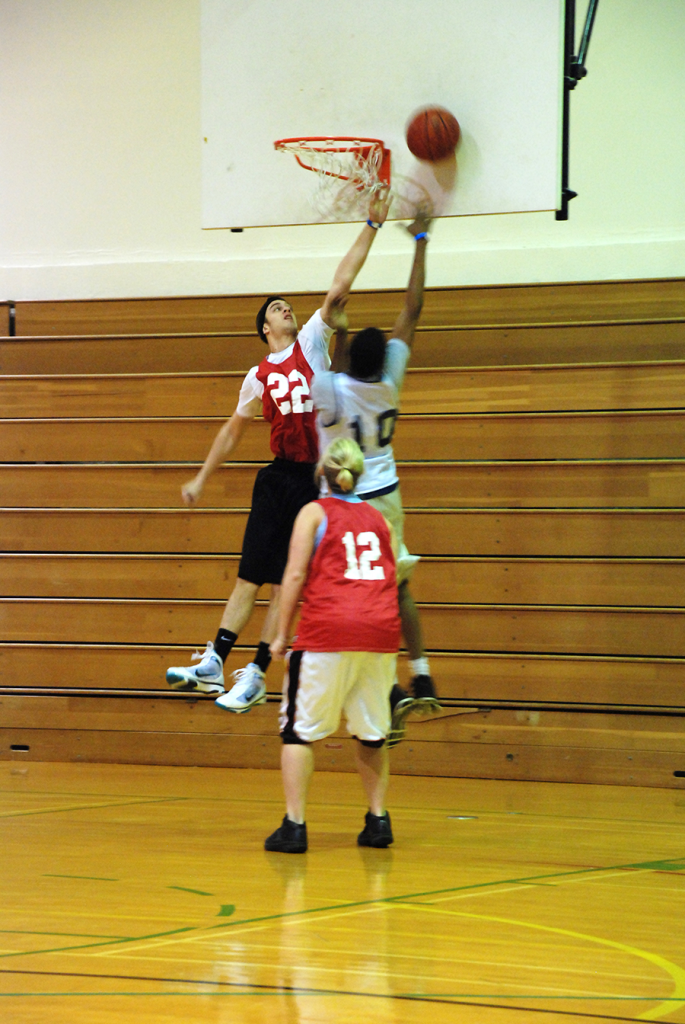By Bethany Peterson/nw news editor
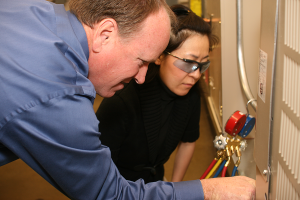
Casey Holder/The Collegian
From owning a plastics company and fixing air-conditioners to doing nonprofit work, TCC instructors can be found working all over.
Patricia Burton, a nursing instructor on South Campus, created the nonprofit Web site Moving Mountains for Kids. The site helps parents like her who are dazed and confused trying to navigate the world of education for disabled children.
Burton’s daughter has Turner’s syndrome, which slows physical growth and affects learning and speaking.
Burton’s nursing degree did not help her understand what was said at her meetings with special education teachers and the school’s psychiatrist about her
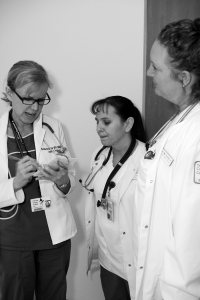
Casey Holder/The Collegian
daughter’s education.
However, the nursing degree did help Burton in her extensive research about children’s disabilities, other possible diagnoses and the methods of treating them.
Urged by requests from several friends, she began the Web site in 1999 to offer other parents her knowledge, articles she gathered and professional contacts.
“I realized from talking to others that they don’t have a nursing degree and can’t get the answers,” Burton said.
She gets five to 10 e-mails a month from parents asking more questions, Burton said.
Burton balances her two jobs by working on her Web site and providing prolonged help to families mostly during the summer. If she starts doing more lectures or conferences, she would schedule them in the summer, she said.
Like Burton, Joan Shriver, NW Campus computer instructor, began working to help someone else.
Her dad’s business, Plastic Packaging Inc., made items like the thin trays in the bottom of boxes of fancy chocolates.
But in 1993, business was so bad that her dad’s secretary called Shriver and asked her to come help the company get back on its feet.
“[The secretary] said, ‘Please come over and help. I think you would be a real asset to the company,’” Shriver said.
Shriver became her father’s
business partner and managed to resurrect the business. After her father died, she became owner and general manager of the plant. However, the plant is now in the middle of closing.
Before Shriver entered the plastic business with her father, she spent eight years in Europe managing the Boston University overseas computer labs.
One day, she asked the tech support person for help with a problem.
“After my cigarette,” the tech said.
“I never wanted anyone to feel [the way I did] again,” Shriver said.
She decided right then that she would help people with computer questions and that she would never treat anyone that way.
Her first idea was to be a corporate trainer, traveling across the country, training employees. But as a single parent raising a 7-year-old daughter, she thought that would require too much time away from home.
She returned to the U.S. still not sure what to do and got a teaching position at a California naval postgraduate school. There, she fell in love with classroom instruction.
“My heart is in teaching and spending time with the students,” she said.
Another instructor, Randy Osborn, who teaches air conditioning at South Campus, also never intended to teach.
Osborn opened his own air conditioning business in 1984, installing and repairing residential and light commercial air conditioning units.
He landed a part-time position at North Lake College in Irving because he needed the extra money and discovered he loved teaching.
After nine years of part-time teaching at North Lake, he answered a TCC ad for a full-time position and moved to the area in 1995.
When Osborn switched schools, he scaled back his business to part time. This balance lets him keep his business but not be overwhelmed, he said. Osborn loves and looks forward to teaching everyday.
“I get out of bed excited [about teaching],” he said. “With air conditioning, I could roll over and go back to sleep.”
Unlike Osborn and Shriver, Peter Calvin knew he wanted to teach very early.
He took his first photography class when he was 15 years old.
“I had so much fun taking that class, I told the [instructor] I wanted to teach a class someday,” Calvin said.
After years in the field as a freelancer, he returned to school for his master’s degree in art.
“I had the experience. Now I felt qualified to teach,” he said.
He began teaching photography at NE Campus in 2003 and continues to be a commercial architectural photographer. He photographs buildings for architects’ portfolios and trade publications.
“Buildings exist in a perfect state for a short time,” Calvin said.
He photographs the buildings before street signs block them and weathering discolors them. His work has been in The New York Times, The Washington Post and magazines in Germany, England, Belgium and Holland.
Calvin, Burton and Osborn agree that their outside work helps them in the classroom.
“Educating myself about learning styles has been helpful,” Burton said.
She has used her knowledge of audio, hands-on and visual learning styles, a major factor in successful education of disabled children, to better teach her nursing students.
Credibility in the students’ eyes is the biggest benefit of working in the field, Osborn said. Being in the field also makes Osborn keep up with the quickly changing regulations for the air conditioning industry. He can teach his students what it is like right now, not in the past when the book was written.
Osborn’s ties with other professionals provide opportunities for getting guest speakers, and he has invited students to drop by current job sites to see the classroom work in real life.
“The work I do keeps me excited, and I bring those ideas into the classroom,” Calvin said.
The students also give Calvin ideas for his own work. This exchange keeps both sides motivated and inspired.
Providing examples of specific computer programs in use is the only way Shriver’s plastic business benefits her teaching. However, the material she teaches in class easily transferred into use at the company, especially spreadsheets, Shriver said.
These students also appreciate the closer ties to the real world that their instructors have.
“It kind of gives us a real-world perspective,” said Russell Frye, one of Shriver’s students.
Knowing Calvin was a professional was the reason she chose his class, said Brenda Kobusinge, who plans to minor in photography.
“It is important to me that my teacher be a professional because you can get realistic advice from them about how to get into the business,” she said.
Students pay more attention to Calvin because they know he works as a photographer, said Ting Huang, another of Calvin’s students.
“Students, on evaluations, always comment positively on real-world stories,” said Andrew Rhinefort, another South Campus air conditioning instructor with an air conditioning business.






















